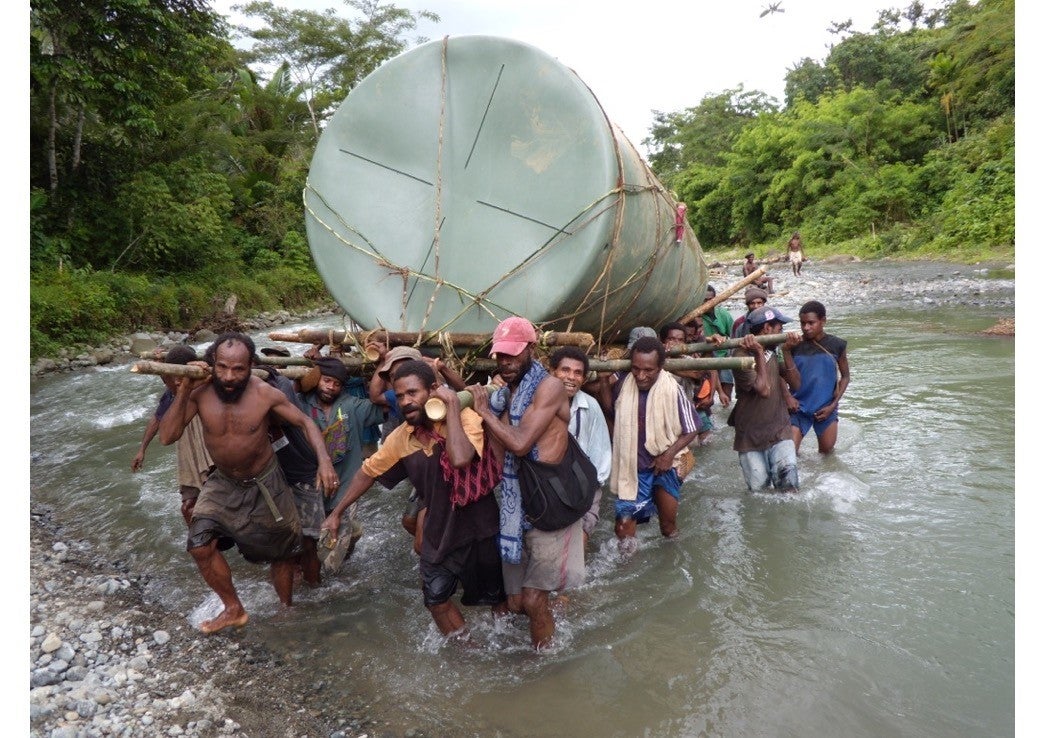
I have been traveling in and out of Papua New Guinea for almost over two years to help tackle the country’s water and sanitation challenges.
I’m constantly surprised by the complexity and cultural diversity of this country. It’s like trying to solve a deep mystery, with a surprise always ahead of you. No wonder they call this ‘the land of the unexpected’.
Papua New Guinea missed its Millennium Development Goal target for water and sanitation. More than 60% of the country’s population (4.6 million people) have no access to safe drinking water and improved sanitation. In over two decades since 1990, the increase in access to safe drinking water has been miniscule (6%) while improved sanitation coverage even dropped by 1% in 2015. Sadly, PNG has the lowest water and sanitation access indicators among the 15 developing Pacific Island nations.
In a country of more than eight million people, characterized by a very diverse and fragmented number of social groups with over 800 distinct languages, the government has an immense challenge to set up a functional management and governance structure to deliver services. In particular, PNG’s lack of infrastructure, weak sector institutions, accountability and monitoring have severely constrained developments in water and sanitation and the goal of achieving access to clean water and adequate sanitation for each and every Papua New Guinean.
Yet progress is being made. PNG’s first ever National Water, Sanitation and Hygiene (WaSH) Policy was adopted in January 2015. This policy introduces a framework for financing the expansion, rehabilitation and maintenance of water and sanitation service delivery primarily in rural and peri-urban settlement areas. The policy is anchored by two development milestones: the PNG Vision 2050 Plan, and the Development Strategic Plan 2010-2030.
The World Bank, in partnership with development partners such as the Australian Government, European Union and UNICEF, is helping to strengthen the environment for improvements to happen. Continued support in infrastructure and technical assistance helps to ensure policies and the work of key government institutions will have a real impact.
In support of the implementation of PNG’s new Water, Sanitation and Hygiene Policy, the World Bank commissioned a research looking at how sustainable the sector’s improvements were in late 2014. The aim of the research was to identify and develop practical approaches to ensure the hard-earned improvements in water and sanitation are equitable, and sustainable. While the study surveyed only a subset of the population in 20 villages across four provinces, it still reflects the general condition of the majority of people living in thousands of villages across the country.
Many of these villages showed a strong adherence to traditional social structures (such as male-dominated, chiefly-structures) which influenced how community water systems are managed. Unlike in other regions of the world, where water often becomes a driver for social cohesion, a number of communities in PNG are in conflict and disagreement over consumption and management of a common resource. The study confirms that community ownership, accountability for maintenance, marginalization and financial sustainability were primary factors hampering the efficient delivery of water and sanitation services nationwide.
These are immense challenges to overcome, and policies must be designed with these challenges in mind. Yet the PNG Government remains optimistic, and so do we, that these challenges can be addressed through the right evidence-based, and ensuring policy and institutional reforms are not operating within a vacuum; that they are working within the broader efforts of the Government of PNG, and development partners, to tackle many of the country’s biggest development challenges.
To this end, the Water Supply and Sanitation Development Project backs PNG’s water sector institutions, such as Water PNG and is helping to expand water services into parts of PNG where water or sanitation services are currently very limited. The project is also building coalitions among all of the organizations involved in improving water and sanitation in PNG to help drive momentum towards a common vision, political support, increase investment – and above all, to help more Papua New Guineans get access to clean, safe water.
More broadly, given PNG’s diverse geography, its large population (PNG comprises two-thirds of the population of the Pacific Islands) and its extraordinary diversity, there is also plenty for the rest of the Pacific to gain from the work in PNG. It could potentially offer solutions on how to address community fragmentation, as well as lessons in coping with economic and environmental vulnerability, political volatility and broader development challenges in the Pacific region. If real progress can be made in the ‘land of the unexpected’, then there’s cause for real optimism for the rest of the Pacific Islands.


Join the Conversation